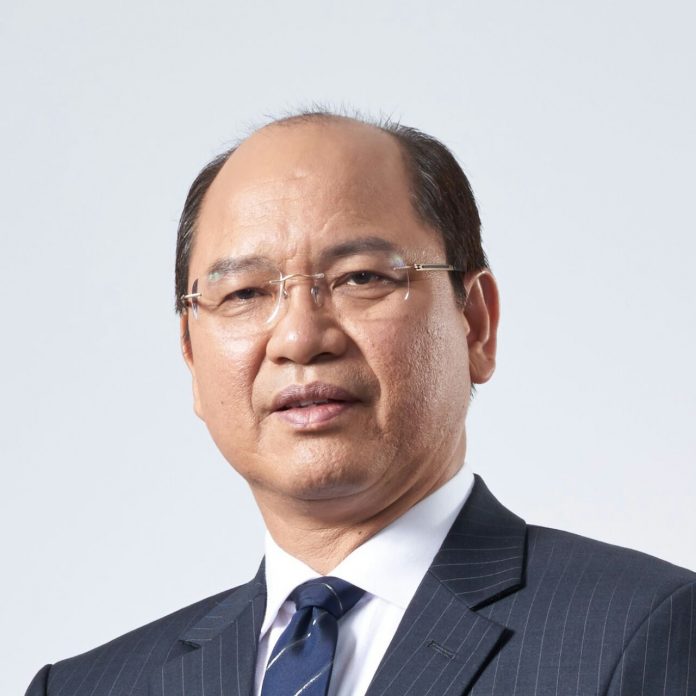By Datuk Seri Panglima Wilfred Madius Tangau, Executive Chairperson WISDOM Foundation
KOTA KINABALU: Extraordinary Procedures with Democratic Legitimacy Crucial to Change the Authoritative Text of Malaysia’s Supreme Law from English to Bahasa Malaysia
WISDOM Foundation implores Attorney-General Tan Sri Idrus Harun and Malaysia’s Attorney General’s Chambers (AGC) to adopt democratic and consultative procedures instead of relying entirely on Article 160B if they wish to initiate the transformation of the Federal Constitution’s authoritative text from the English language to Bahasa Malaysia.
Last 10th January 2023, Attorney-General Tan Sri Idrus Harun proposed for Malaysia’s Federal Government to adopt a Bahasa Malaysia translation of the Federal Constitution as the authoritative version of the supreme law in the country in line with Article 160B.
We recognise this desire for change as it is only right in principle for the supreme law in our country to be in the national language.
This enables the majority of Malaysians, with their first language being Bahasa Malaysia, to better understand their rights as enshrined in the Constitution.
Nevertheless, this proposed change arouses deep concern, especially in Sabah and Sarawak, as the Bahasa Malaysia translation has not been presented to the Federal Parliament and the Assemblies of Sabah and Sarawak and subjected to adequate debate and scrutiny.
Further, the Malay language is still in the process of developing better legal terms to bear the same nuances and meanings as in English.
The English language was used officially to create the 1957 Federal Constitution and in the signing of Malaysia Agreement 1963 (MA63) as the British Government was also included in these proceedings.
It is important to acknowledge that language develops over time; the English language used in that period bears nuances and intentions made specific to that particular context of time.
Hence, a premature change of the authoritative text to Bahasa Malaysia would fail to reflect the true intention of the 1957/1963 Federal Constitution and MA63.
A translation needs to reflect the rights of all Malaysians within the correct context and to uphold the original spirit and intended nuances during the creation of the 1957/1963 Federal Constitution.
It must also be remembered that our supreme law permits references to English laws if there are gaps or omissions in our statutes.
It would be a grievous mistake to treat this monumental transformative project as a simple translation job of the mid-20th Century English language to modern day Bahasa Malaysia, handled by limited authorities before presentation to the Yang di-Pertuan Agong for endorsement.
This process can be seen as a significant constitutional amendment, bearing similar significance to the creation of the 1957/1963 Federal Constitution, where inaccurate translations would change individual as well as collective constitutional rights.
Without democratic proceedings in place, this procedure may lead to the rise of tension in federal-state relations, upset governmental responsibilities, threaten basic rights and fundamental liberties, and the rule of law.
Within the purview of the Borneo States, Article 161(3) of the Federal Constitution states that English remains as the language used in the High Court of Sabah and Sarawak unless a change is approved by the Legislature of the State.
Hence, the act of amending and making Bahasa Malaysia as the authoritative text without consent from Sabah Sarawak can be challenged as an unconstitutional act as it goes against the intention and spirit of this provision within the supreme law.
As a major amendment, the responsibility to review the translation of the Constitution to become the authoritative text should not rest on the AGC alone; it is a power and duty to be shared by all the three branches of powers in governance to include the legislature and judiciary at both the federal, state, and regional level.
Being likened to re-configuring the DNA of Malaysia, extraordinary procedures requiring inputs from various stakeholders nationwide must be implemented to ensure significant changes to the supreme law would still safeguard the rights of the Rulers and the Rakyat.
For instance, prior to the creation and ratification of the 1957 Federal Constitution, the Reid Commission held 118 conferences and examined 131 memoranda from all walks of life to guide their drafting.
The AGC can replicate this process to create a more holistic approach in the translation of the supreme law by getting input from the following actors:
i. the Conference of Rulers
ii. the Governors of Sabah and Sarawak respectively
iii. the Attorney-General of Sabah and Sarawak respectively
iv. the Malaysian Bar Council
v. the Sabah Law Society (SLS)
vi. the Advocates Association of Sarawak (AAS)
vii. state legislative assemblies
viii. representatives from Malaysia’s law faculties
ix. field experts and academicians
x. civil society organisations (CSOs) and non-governmental organisations (NGOs)
xi. minority communities
xii. all relevant stakeholders.
Changing the language of the authoritative text of the Federal Constitution of a country requires incredible efforts and should not be an executive dominated agenda.
For example, the Republic of India took extraordinary measures in the implementation of Hindi as an Authoritative text for the Constitution of India under the 58th Constitutional Amendment Act 1987.
With the provision of Article 394 A, the Hindi version with the updated amendments was given the same legal sanctity as the English version of the Constitution of India.
However, under Article 348(1)(b) of the Constitution of India, the language to be used in the Supreme Court and in the High Court for Acts, Bills, etc.- shall still be in the English language.
This example gives a brief insight into future challenges ahead as similarly to the Constitution of India, Malaysia’s Federal Constitution was also firstly created in the English language before being translated into the national language.
WISDOM Foundation recommends the following measures to ensure a holistic approach should the proposal from Attorney-General Tan Sri Idrus Harun were to advance:
1. Having special Parliamentary and State Assembly proceedings to debate the super amendment to the Federal Constitution
2. Setting up a Special Select Committee in Parliament to supervise the translation process
3. Conducting meetings with relevant stakeholders to receive input
4. Performing physical and/or virtual surveys to receive views from the general public.
Given the paramount journey ahead in the nationalisation of the language of Malaysia’s supreme law, we also call upon all Malaysians to speak up and take immense measures in the change of the authoritative text language to protect our rights from dilution or extinguishment while avoiding unnecessary tensions that may arise from inaccurate translations.


